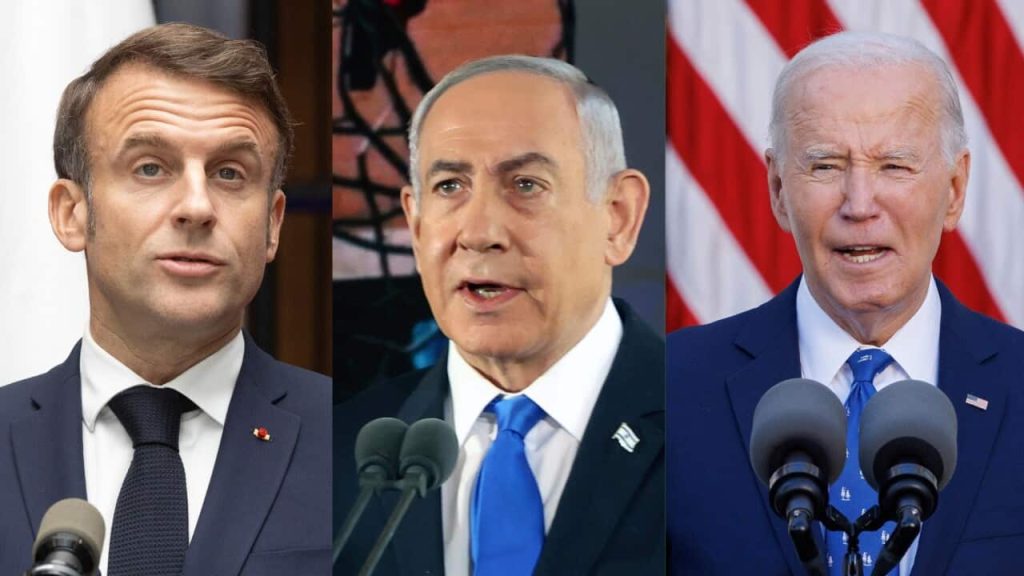Israel-Hezbollah Ceasefire: A Permanent Solution to a Decades-Long Conflict
Introduction:
In a historic move, Israel’s security cabinet voted 10-1 to approve a US-brokered ceasefire proposal with Hezbollah. The agreement, aimed at ending the conflict that has plagued the region since the Gaza war last year, marks a significant step towards peace. US President Joe Biden hailed the deal as a “permanent cessation of hostilities” designed to ensure the security of Israel and prevent Hezbollah from threatening the region again.
Key Points:
Here are some key points surrounding the Israel-Hezbollah ceasefire deal:
– Israel’s security cabinet voted 10-1 to approve the US ceasefire proposal.
– The agreement requires Israeli troops to gradually withdraw from south Lebanon, allowing Lebanon’s army to deploy in the region.
– Lebanese Prime Minister Najib Mikati welcomed the deal, signaling a positive step towards peace in the region.
Biden’s Role in the Ceasefire:
President Biden played a crucial role in brokering the ceasefire agreement between Israel and Hezbollah. His efforts have paved the way for a lasting peace, ensuring that civilians on both sides can soon return to their communities safely. Biden emphasized the importance of preventing Hezbollah from rebuilding its infrastructure near the Israeli border, a key provision of the ceasefire deal.
Netanyahu’s Commitment to Peace:
Israeli Prime Minister Benjamin Netanyahu expressed readiness to implement the ceasefire deal and vowed to respond forcefully to any violations by Hezbollah. He reiterated Israel’s commitment to enforcing the agreement and maintaining “complete military freedom of action” to ensure the safety and security of the region. Netanyahu outlined three reasons for pursuing a ceasefire, including focusing on the threat from Iran and isolating Hamas.
Lebanon’s Role in the Ceasefire:
Lebanon plays a crucial role in the ceasefire agreement, with Lebanese officials confirming that Israeli troops will withdraw from south Lebanon as Lebanon’s army takes control of the region. Hezbollah has agreed to end its armed presence along the border south of the Litani River, marking a significant step towards peace and stability in the region. Lebanese Foreign Minister Abdallah Bou Habib highlighted the readiness of the Lebanese army to deploy troops in southern Lebanon and welcomed US assistance in rebuilding infrastructure destroyed by Israeli strikes.
Australia’s Response to the Ceasefire:
Foreign Minister Penny Wong of Australia welcomed the ceasefire between Israel and Hezbollah, stating that it should serve as a catalyst for ending conflict in the Middle East. Wong emphasized the need for peace in the region and expressed relief that the people of Lebanon and Israel can finally experience some respite from the ongoing hostilities.
Conclusion:
The Israel-Hezbollah ceasefire represents a significant breakthrough in the decades-long conflict that has plagued the region. With the support of key leaders like President Biden and Prime Minister Netanyahu, the ceasefire agreement offers hope for a lasting peace that will benefit civilians on both sides. As the ceasefire takes effect, efforts to rebuild and restore stability in the region will be crucial to ensuring a brighter future for all involved.
FAQs:
– What prompted the Israel-Hezbollah ceasefire deal?
The ceasefire agreement was prompted by ongoing conflicts in the region, including the Gaza war and escalating tensions between Israel and Hezbollah.
– How will the ceasefire impact civilians in the region?
The ceasefire will allow civilians on both sides to return to their communities safely and experience a much-needed respite from the hostilities that have plagued the region for years.

